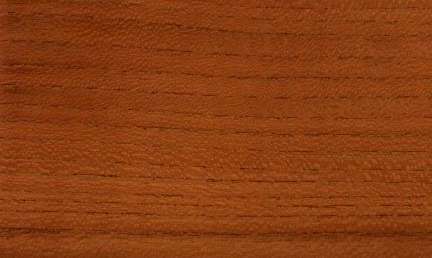
Keyaki (Zelkova serrata)
Family: Ulmaceae
Common names: Japanese zelkova , Keaki, Keyaki, Kilkova, Neuti, Zelkova
Distributed in: China, Japan, United States (North America, Oceania and S.E. Asia)
Distribution overview: Native to Japan, but has been cultivated successfully across the United States. It prefers to grow in moist soils in humid temperate regions.
Common uses: Balusters, Boat building (general), Boat building, Building construction, Building materials, Cabin construction, Cabinetmaking, Canoes, Carvings, Chairs, Chests, Concealed parts (Furniture), Construction, Decorative plywood, Decorative veneer, Desks, Dining-room furniture, Domestic flooring, Dowell pins, Dowells, Drawer sides, Excelsior, Factory construction, Figured veneer, Fine furniture, Floor lamps, Flooring, Furniture , Furniture components, Furniture squares or stock, Furniture, Handles, Hatracks, Heavy construction, Interior construction, Joinery, Kitchen cabinets, Lifeboats, Light construction, Living-room suites, Mine timbers, Moldings, Office furniture, Ornamental work , Paneling, Tool handles
Environment profile: Status has not been officially assessed
Tree size: Tree height is 10-20 m
Colors: the heart isYellow to golden-yellow to orange, Yellowish brown to brown or light golden brown and the sapwoodWhite to yellowish-white , Yellow.The grain isWavy, the textureFineand the lusterNatural sheen
Natural durability: Perishable, Very durable
Odor: No specific smell or taste
Kiln Drying Rate: Naturally dries slowly
Drying Defects: May distort during drying , No twisting or warping
Ease of Drying: Slowly
Comments: General finishing qualities are rated as satisfactory Keyaki is used for the construction and maintenance of temples in China and Japan, and is protected for those uses only. Resistance to Dutch elm disease Similar to elms, and has been suggestes as a substitute for American elm (U. americana) Used for construction and maintenance of temples and is protected for only those uses
Blunting Effect: Moderate dulling effect on cutting edges
Cutting Resistance: Saws well
Gluing: Satisfactory gluing properties
Nailing: Satisfactory nailing properties
Planing: Yields clean surfaces in planing, turning, boring and other machining operations
Resistance to Impregnation: Moderately difficult to treat with preservatives
Response to hand tools: Yields clean surfaces
Sanding: Good sanding properties
Veneering qualities: There is slight to moderate drying degrade and the potential for buckles and splits, Very large burrs that yield highly figured wood, with features like a delicate bird's eyes outlined with fine fringes and prominent rays
Steam bending: Good steam bending properties
Screwing: Responds well to screwing
; Turning: Fairly Easy to Very Easy
Polishing: Yields a smooth and excellent finish ;
- Numerical data Metric
- Numerical data English
- Strength properties
- References
 |
 |
 |
 |
| Item |
Green |
Dry |
Metric |
| Specific Gravity |
|
0,6 |
|
| Density |
|
641 |
kg/m3 |
| Bending Strength |
|
913 |
kg/cm2 |
| Crushing Strength |
|
520 |
kg/cm2 |
| Hardness |
|
473 |
kg |
| Impact Strength |
|
|
cm |
| Shearing Strength |
|
103 |
kg/cm2 |
| Stiffness |
|
117 |
1000 kg/cm2 |
| Tangential Shrinkage |
|
|
% |
| Radial Shrinkage |
|
|
% |
| Weight |
|
|
kg/m3 |
| Maximum Load |
|
|
cm-kg/cm3 |
| Toughness |
|
169 |
cm-kg |
| Static Bending |
|
|
kg/cm2 |
|
 |  |  |  | | Item | Green | Dry | English | | Bending Strength | | 12990 | psi | | Density | | 40 | lbs/ft3 | | Hardness | | 1044 | lbs | | Maximum Crushing Strength | | 7404 | psi | | Shearing Strength | | 1475 | psi | | Stiffness | | 1671 | 1000 psi | | Toughness | | 147 | inch-lbs | | Specific Gravity | | 0.6 | | | Weight | 39 | 31 | lbs/ft3 | |
High in density
Heavy
Hardness = medium
Density (dry weight) = 38-45 lbs/cu. ft.
Crushing strength = high
Compression strength (parallel to grain) = high
Bending strength (MOR) = high
Bending strength in the air-dry condition (about 12 percent moisture content) is high - comparable to Teak. Some familiar species with high crushing strength parallel to grain include Hard maple, Teak, and White oak. It resists denting and marring about as well as white oak or birch
Brown, W.H.,1978,Timbers of the World, No.5 Philippines and Japan,TRADA, Red Booklet SeriesChun, W.Y.,1921,Chinese Economic Trees,Commercial Press Ltd, Shangai, ChinaHoward, A.L.,1948,A Manual of Timbers of the World.,Macmillan & Co. Ltd. London 3rd ed.I.U.F.R.O.,1973,Veneer Species of the World,Assembled at F.P.L. Madison on behalf of I.U.F.R.O. Working Party on,Slicing and Veneer CuttingJapan Forest Technical Association,1964,Illustrated Important Forest Trees of Japan,Chikyu Shuppan Co. Ltd, Tokyo, JapanKloot, N.H. and E. Bolza. 1961. Properties of Timbers Imported into Australia. Commonwealth Scientific and Industrial Organization (CSIRO, Division of Forest Products Technological Paper No. 12, Melbourne, Australia.Lee, S.C.,1935,Forest Botany of China,Commercial Press Ltd, Shanghai, ChinaLincoln, W.A. 1986. World Woods in Color. Linden Publishing Co. Inc., Fresno, California.Little, E.L.1980.The Audubon Society Field Guide to North American Trees - Eastern Region.Published by Arthur A. Knopf, New York.Mizumoto, S.,1968,On the relative durability of some broad-leaved woods to fungal attack,Journal of the Japanese Wood Research Society 14(8) pp434-439
|








